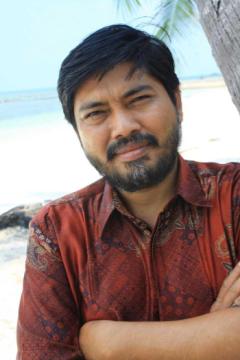In search for a new IMO Secretary-General – assessing Indonesia’s strength at the Global Maritime Forum
The selection process to find a successor for the leader of the
organization, which is under the United Nations, started in December 2022.
March 31 was the deadline for nominating candidates. Seven have been
proposed by seven member countries of the organization, whose Headquarters are
based in the city of London.
Media reported that the seven candidates include Moin Uddin Ahmed
(Bangladesh), Suat Hayri Aka (Turkiye), Arsenio Antonio Dominguez Velasco
(Panama), Cleopatra Doumbia-Henry (Dominica), Nancy Karigithu (Kenya), Minna
Kivimäki (Finland) and Zhang Xiaojie (China).
Their fate will be determined in elections by the IMO Council, which will hold its 129th meeting in July 2023.
As a member country, Indonesia did not nominate any of its compatriots,
despite the lack of any impediment. What a pity.
Why is it important to pay attention to the IMO Secretary-General
election?
This year’s IMO Secretary-General selection deserves attention because
issues such as decarbonization in the shipping industry, supply chain security,
trade route freedom and others have surfaced in recent years.
These issues will intensify in the subsequent tenure, whoever the IMO
Secretary-General will be.
In the IMO system, the Secretary-General holds limited power. Policies
are discussed, and decisions are made in Committees, where the most “powerful”
among them is the Maritime Safety Committee or MSC.
Nevertheless, the Secretary-General can shape and direct developing
issues.
This is why IMO member countries, at least those with nominated
candidates, hope the Secretary-General will be one from their own country.
Therefore, they can benefit as much as possible from every policy and
regulation produced by existing Committees.
Since the United Nations Framework Convention on Climate Change (UNFCC)
was first launched in 1992, the shipping sector has been actively involved in climate
change issues.
IMO then amended the MARPOL Convention and issued Resolution 8 regarding
CO2 emissions from ships, in 1997.
According to expert estimates, emissions from the shipping sector are
around 2 percent of the world’s total greenhouse gas (GHG) and are expected to
increase in the coming years.
In response to this condition, in April 2018, IMO issued the “Initial
Strategy on the Reduction of GHG Emissions from Ships”, aiming to reduce GHG in
the international shipping sector by at least 50 percent by 2050.
The target is to solve the problem within this century. One of the
decarbonization attempts is by using alternative fuels for ships.
Several fuel options have emerged, and various gases (LNG, Ammonia and
others) are considered to be used as fuels. Some of the vessels using these
specific fuels have already crossed the oceans.
The shipping sector notes that ten ships currently use LNG, including
Creole Spirit, Isla Bella and Rem Eir.
Wind energy is also used in wind propulsion technology. Nuclear power
has joined the list, although this alternative fuel is not entirely new to the
shipping business.
The readers might still remember Savannah MV – the first nuclear-powered
merchant ship.
This ship was built in 1950 for USD 46.9 million and launched in 1959.
It operated until 1972.
Then, there was the Lenin, a nuclear-powered icebreaker vessel made by
the Soviet Union, constructed in 1957.
As mentioned above, Indonesia has not nominated any of its countrymen as
candidates for the IMO Secretary-General position, despite any reason not to do
so.
Our country indeed has relatively strong assets when compared to other
countries. For instance, we are the largest archipelagic state.
We also claim to be a world maritime axis. This means that Indonesia is
the epicenter of the global maritime world.
Indonesia’s non-participation in the nomination of the IMO
Secretary-General seemed to stem from the Government’s lack of confidence
regarding whom to nominate.
Many Indonesian figures are active in the maritime area, dealing in
areas such as shipping, ports and so on, and are widely known nationally.
Unfortunately, they are not recognized in the international maritime
world. If Indonesia were to nominate one of these figures to join the selection
of a new IMO Secretary-General, it would be difficult to “sell” them in the
election compared to, for example, Cleopatra Doumbia-Henry, the candidate
nominated by Dominica.
She is widely known by the maritime community through her former
position as chancellor of the World Maritime University (WMU) in Malmo, Sweden.
She was succeeded by Max Mejia from the Philippines.
If the Indonesian Government seemed unconfident in nominating a national
maritime figure as a candidate for IMO Secretary-General, it should have used
help from a third party to endorse its candidate, like the candidate from
Kenya, Nancy Karigithu.
Nancy was endorsed by the Center for Ocean Policy and Economics (COPE),
a US-based maritime NGO.
But then again, the ones nominated are those who have unrivaled
experience in the maritime world. Nancy, for example, served as chair of the
IMO’s Technical Cooperation Commission for two terms.
It is no use crying over spilt milk. Hopefully, in the next IMO Secretary-General
election, Indonesia can nominate a candidate.
Until then, we should increase our leverage at IMO to be better known by
the global maritime community. This can be done by instating a special maritime
ambassador at the organization.
Currently, the Indonesian ambassador in London is the permanent
representative at IMO. In practice, the one attending most of the IMO meetings
is the communications attaché with the position of alternate representative.
Indonesia’s maritime diplomacy position, represented by an attaché, was
aggravated by the appointment of an employee of the Transportation Ministry as
the communication attaché.
This position is often designated a “gift” for officials unable to obtain Echelon II positions at the Head Office. They do not receive a proper foundation, which can be seen from their relatively low level of English. Beats me.




Komentar
Posting Komentar